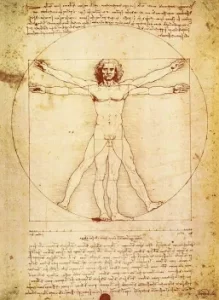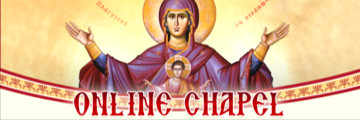 In the search to feel alive and at peace with life and one another, contemporary post-modern digital culture has given rise to some strange contradictions. People are lonelier while having more and more digital “friends” on Facebook. At odds with and dissociated from our physical bodies, there is an increasing preoccupation with constructing a ‘self’ out of subjective imagination, words, and feelings supported by an insistent demand that everyone else affirm whatever is being expressed regardless of its effects on society.
In the search to feel alive and at peace with life and one another, contemporary post-modern digital culture has given rise to some strange contradictions. People are lonelier while having more and more digital “friends” on Facebook. At odds with and dissociated from our physical bodies, there is an increasing preoccupation with constructing a ‘self’ out of subjective imagination, words, and feelings supported by an insistent demand that everyone else affirm whatever is being expressed regardless of its effects on society.
In the midst of the highest quality of medical care in history and the most abundant production of food, we are more and more unhealthy and malnourished. The desire to escape into the outdoors for recreation increases in proportion to the sedentary life spent indoors at desks before computers, while the diversity and health of our environment is being destroyed by our unwillingness to sacrifice short term gains for long-term sustainability.
A burning question fueling all these contradictions might be characterized as, “What must I do to feel alive?” It is a variation of one that a certain accomplished, and wealthy young man described in the Gospels of Matthew, Mark and Luke asked Jesus. St Luke [Lk 18:18] calls the man an “archon” [αρκών]– a word still in use in the Greek Orthodox Church now to describe wealthy and influential lay persons who serve as benefactors of the Church in the Order of St. Andrew.
The young man is religiously pious. He has zeal for the Mosaic Law and a desire to achieve its fulfillment. St Mark includes the detail that he was running in order to meet Jesus and immediately knelt before him [Mk 10:17]. All three Apostles recall him asking, “What must I do to have eternal life?” Jesus’ response to him is first to question an assumption implicit in how he addresses him.
“Why do you call me good?” Jesus questions the assumption underlying the man’s request by placing it before the reality of God. This is a frame which post-modern culture is unable or unwilling to concede; that only God is good and no human beings on their own or in their own way, can be good, regardless of approval by one another and society. God alone is good.
Jesus doesn’t drive the point home, or elaborate on it for the man, he just opens the door a bit. If the man’s piety and search are genuine, if there is humility, then there will be no offence. Jesus then proceeds to answer his question as he has framed it. “If you wish to enter life, keep the Law.”
The young man asks him for specifics. “Which commandments?”
What Jesus offers him are the specifc parts of the Mosaic Decalogue that relate to relations between persons in the community. “You shall not kill. You shall not commit adultery, You shall not steal. You shall not bear false witness. Honor Your Father and mother and your neighbor as yourself.” Interestingly he leaves out the part about having no other gods but God and loving God with your whole being: body, mind and soul. The Children of Post modernity might agree with the rules of social relations without reference to God, but only as political fiats that can be changed as desired to accomodate whatever one wants.
The young man says, “I have done all these. What do I still lack?”
St Mark’s account includes that at this point in the encounter, “Jesus looked at the young man and loved him.” This suggests that Jesus saw both the man’s sincerity and potential as well as his naivete. What a wonderful gift that must have been to the degree the young man realized even a fraction of what that look upon him meant. Had he known who it was he was speaking with and the degree of his condescension, he would have found the answer to the deeper question he did not yet realize he was asking.
My friend Dr. Mary Ford, a Professor of New Testament at St Tikhon’s Seminary, told me about her first encounter with St. Sophrony at his monastery in Essex. She said as he came around the corner of the church she had not seen so much love in someone’s face before. That alone was worth the whole meeting with him.
Jesus is so much more than a “good teacher” as this young man characterized him. What the young man thought was “good” was merely a human self-construction; something achievable by anyone who wanted it if they wanted to bad enough and knew what to do. Post-modernity would have no argument with that. Everybody is “good” no matter how we construct ourselves even if contrary to the reality of the Giver of Life in Whose Image, and Likeness we are made, according to the revelation of God to Israel as a word to the Nations to seek that God’s will be done on earth as it is in heaven.”
Jesus is someone whose heart knew no sin. He was totally and freely in accordance with the will of God everywhere and in all places, and in total solidarity with the weakness of humankind simultaneously. He realizes in himself the full potential of humankind for oneness with God and also bears the consequences of how far humanity is from God. In the person of Jesus, the young man was looking at the glory of God revealed in the face of Jesus who St. Irenaeus described as “a human being fully alive.” Jesus is that eternal life he seeks and all who are in Communion with him share in that aliveness.
This Holy Communion is exactly what the rich, young ruler was searching for, although he wasn’t clear about it. He thought he was asking for something he could “do” to improve himself. In post-modern terms he was asking “How can I socially construct myself in accordance with my subjective feelings and imagination so as to be comfortable in my body and with others and the world in my own eyes? Apart from Communion with Christ who is both God and Man, any form of individualistc self-construction involves a terrible contradiction hanging like the Sword of Damoceles over post-modernity. It is the reduction and reconstruction of God in man’s image, the Tower of Babel.
Attaining such clarity is the fruit of a long life of defeat of our egotism while proceeding in faith with ascetical struggle, repentance, worship and prayer in response to Divine Grace, not as attempts at self-improvement but as responses to being loved. St Paul writes “For now we see in a mirror dimly, but then face to face. When I was a child I reasoned like a child, but when I became a man I gave up childish ways.” [ I Cor 13:12ff]
To be a fully alive human being is a great and rare thing. We are mostly children spiritually, dreaming of arriving at maturity in our own way and out of our own merits, in our own time, not realizing that the path that leads to being a true human being passes across the threshold of monologue and narcissistic achievements through repentance and the mysterious pain of heart to be found only in Communion with others in and through Christ.
Jesus offers the man a gift by saying to him, “If you want to fulfill the end for which you were created, if you want to find the aliveness you are seeking, then sell what you possess and give it to the poor. You will have treasure in heaven and then Come, Follow me. It is an invitation to discipleship of Communion.
The Gospel writers tell us that at this word, the young man went away from him, sorrowful, for he had great possessions. He suffered at that moment lype, a kind of egoistic ‘sadness’ or disappointment that he did not get what he wanted. It is an indication that his self-love and individualism were part of his search. The sword of Christ’s word from love created revealed his lack of repentance and the worldly attachment creating a stumbling block for him.
He received from Jesus a real answer to his question that invited him beyond what he had yet realized he was asking, into the beginning of wisdom – a humbling self-confrontation with God’s love leading to repentance. Jesus was inviting him into Communion; to pick up and share the Cross and move beyond his self-centered humanism to eternal life in a way the man could not do by himself on his own.
The young man now had a holy wound instead of merely discontent. He was before the contradiction within himself between his desire for eternal life and his desire for worldly comforts that support his self-love. He was before the choice of whether to move beyond the isolation, loneliness and restlessness of human doing and enter upon the path of love through Communion with Christ and all whom Christ loves.
The man had asked what he could do to be fully alive. Jesus loved him for what he had already done in obeying the Mosaic Law. When the man persisted, Jesus realized he was hungering and thirsting for a life that he could not find in the same way he had what he had accomplished so far. His good works had not yet led him into Communion or helped him realize that the life we all live, is not our own, but God given, at a great price, in hopes that we will realize what and who true life is. The young man was using religion as an adjunct to what he relied on even more – his wealth and possessions, power and privilege, but he had not yet discovered this.
As he went on his way sorrowfully, Jesus turned and empathized with his disciples, ‘How hard it is for those rich in worldly blessing to enter into eternal life.’ Why? Because whatever we are not willing to let go of to find the life we are looking for is what we love and find consolation in more than Christ. We cannot find eternal life if we have other gods before God. This is the first commandment that Jesus left out.
With his disciples, Jesus used the illustration of a camel going through the eye of a needle. The “eye of a needle” was a very narrow gateway leading into Jerusalem and camels had to be unloaded of their cargo in order to enter the city. In this sense it is a metaphor of the heart. In order to enter into eternal life, we must divest of our treasures in order to possess the pearl of great price. The disciples were “astonished” by what they had witnessed and what Jesus had said and asked “Then who can be saved?”
Jesus’ response sums up the issue. “When men it is impossible, but with God all things are possible.” This is what the young man and the disciples did not fully comprehend. This is our problem as well. We are often too focused on what we think we can and should do on our own and not on what can be done only in and through Christ who unites heaven and earth in Himself.
When St Paul, another rich young ruler in his early years was on the way to Damascus, he was blinded by the Uncreated divine light and redirected toward life in Christ. In his later years when St. Paul sought God three times to remove a thorn from his flesh which he could not overcome, he was told by the Spirit, each time, “My Grace is sufficient for you for my power is made perfect, it is fulfilled, in your weakness.”
When I was a young man, a group of us in Seminary sat in silence for long periods together weekly. After reading the Way of a Pilgrim, I prayed the Jesus prayer 4,000 times an evening for a short time. I went without food for seven days. I slept on the floor without a mattress for 3 years. I had no possessions except my car, some tools, books, records and my clothes. I sought out a spiritual guide who began to reveal to me the naivete, arrogance and poverty of my own narcissistic idealism that kept me from loving others as I thought I did and confusing God with my imagination about God.
Twenty years later when I shared my spiritual exploits and ascetical struggles during a long confession with an elder on Mt Athos who was familiar with my writing and my thoughts, he asked me “And did your ego grow too?” I answered, immediately without any doubt, ‘Yes.” With every gift from God comes a corresponding test whether we will make the deposit of the experience in the bank of empty glory [kenodoxia] or offer it back to God for the commonwealth of the Kingdom [Orthodoxy], glorifying God by realiziing everything we have and are and accomplish comes down as a gift from the Father of Lights.
A few years later, I was visiting Karea monastery in Athens and still in some ways a rich young ruler, I asked Mother Philothei, “What exactly must I do to open the door in the heart in prayer?” She listened naturally and simply and responded to my attempt at careful precise detail,
“He comes to us.”
My eyes misted instantly as her grace-imbued words opened a door of hope in me. But I persisted in my questioning seeking to get the answer that would give me something I could do that I hadn’t yet done in order to find the communion with Christ I sought. In that same natural unaffected way, she responded,
“We must be like the thief on the cross so that when the doors of the Kingdom of Heaven are shut we blow under them with the dust .” My heart opened and the tears confirmed that her words had hit the mark.
I am now 68 years old and when I think of the question, “What good deed must we do to have eternal life?” I am a little bit closer to recognizing that God is that deed and has revealed Himself in His Son Jesus Christ through the power of the Holy Spirit. As Jesus told his disciples, “Apart from me, you can do nothing.” [ Jn 15:5]
In reality, it is Christ who pursues and questions us in hopes that we may step out beyond our self-constructed imaginations and hidden idols and attachments onto the unfathomable waters welling up in to eternal life, discovering what it is to be loved and to love others as God loves us in Christ. This is the Way, the Truth and the Life we are all seeking and it cannot be found by ourselves alone. Nor is it a humanly possible accompishment.
Paradoxically, it is only communion-in-being together in Christ with others in one inclusive harmony that does not violate the freedom of any of us, ensuring the uniqueness of each whom Christ loves. No form of social construction, genetic, medical or technological or sociopolitical engineering can achieve what is only given by God in Communion. Trinitarian Love is the eternal life we seek and Who is seeking each of us and all of us together.



